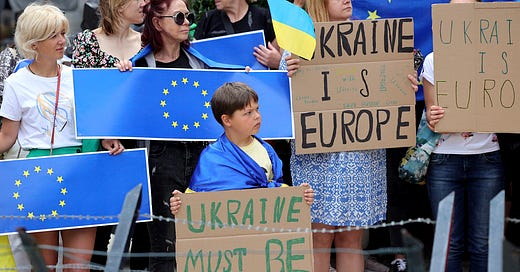As European Union Candidates, Ukraine, and Moldova Will Have to Follow a Long and Demanding Path.
Answer to four big questions about what's next for the country of Volodymyr Zelensky.
Meeting on Thursday, June 23, 2022, in Luxembourg, the 27 member countries of the EU have granted the wish of Volodymyr Zelensky. The twenty-seven have just officially granted Ukraine and Moldova the status of candidate states to the European Union. A decision that paves the way for the launch of the accession process for Ukraine and Moldova.
The enthusi…
Keep reading with a 7-day free trial
Subscribe to Sylvain Saurel’s Newsletter to keep reading this post and get 7 days of free access to the full post archives.




